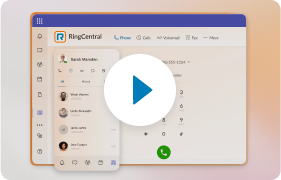
VoIP Theft of Service
One of the most rampant VoIP security issues is theft of service. It could be at a basic level where login credentials are stolen and sold on the black market. Or, it could be something as big as the International Revenue Sharing Fraud (IRSF), which defrauds national carriers through their local carrier interconnect agreements.
The most effective way of dealing with this is by securing your network. The first step is establishing strict standards in password setting. Make sure that your users are setting strong passwords by discouraging the use of their extension codes, repeating numbers or sequential patterns. Of course, this is easier said that done. Default password strength settings that are too strict can be frustrating for some users.
Other measures include encryption and increasing physical security of servers that house user access credentials. Carriers can also use a fraud detection software to alert them of suspicious call routing requests.
Denial of Service Attacks on VoIP
Like typical DoS attacks, VoIP denial of service attacks are malicious and choose one target at a time. Attacks usually originate from multiple points (often compromised computers), and send massive voice traffic to the target carrier. Anything that attacks the carrier will affect services to their users.
There really is no concrete way of preventing attacks. Carriers can choose to use session border controllers that have anti-DoS measures included. They can also develop caller identification systems that authenticate calling numbers via certificates. Malicious sources of calls can also be tagged and blocked.
Interception of VoIP Calls
If you think call interception is just a problem for celebrities and politicians, think again. Call interception in VoIP is very real. Its purpose varies, but you should be wary of it enough to impose countermeasures. Call data can be captured through access to the network it travels on. Intercepted calls can be coursed through a proxy, which then records calls.
Call encryption can be a way around this VoIP problem. Increased physical security of vulnerable areas is also a requisite.
Malware in Signaling and Media Sessions
Malware is defined as software that takes over a system and uses it to propagate itself and attack vulnerable computers. Self-propagating malware is referred to as “worms”. Malware may also be injected through your signaling and media sessions, which then infects your local system.
Worm infiltration opens up your VoIP network, media and signaling structure, PBX, databases, user account credentials and more. It is also a major security breach that exposes your business to further attacks.
To counter this, you can implement deep packet inspection, a way of network packet filtering that examines packets for spam, viruses and intrusions.
Stay On Top of Your VoIP
Ideally, you won’t have to deal with breaches in your VoIP phone service security. But, it is better to be safe than sorry. It is important to stay on top of your VoIP system and how it performs, and to implement monitoring systems and safeguards as preventive walls against malicious attacks. This means implementing 24/7 VoIP testing through services like VoIP Spear, imposing stricter password guidelines, physically guarding your network, and choosing a VoIP service provider that takes security seriously.
Updated Aug 27, 2024










